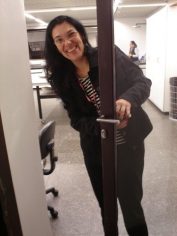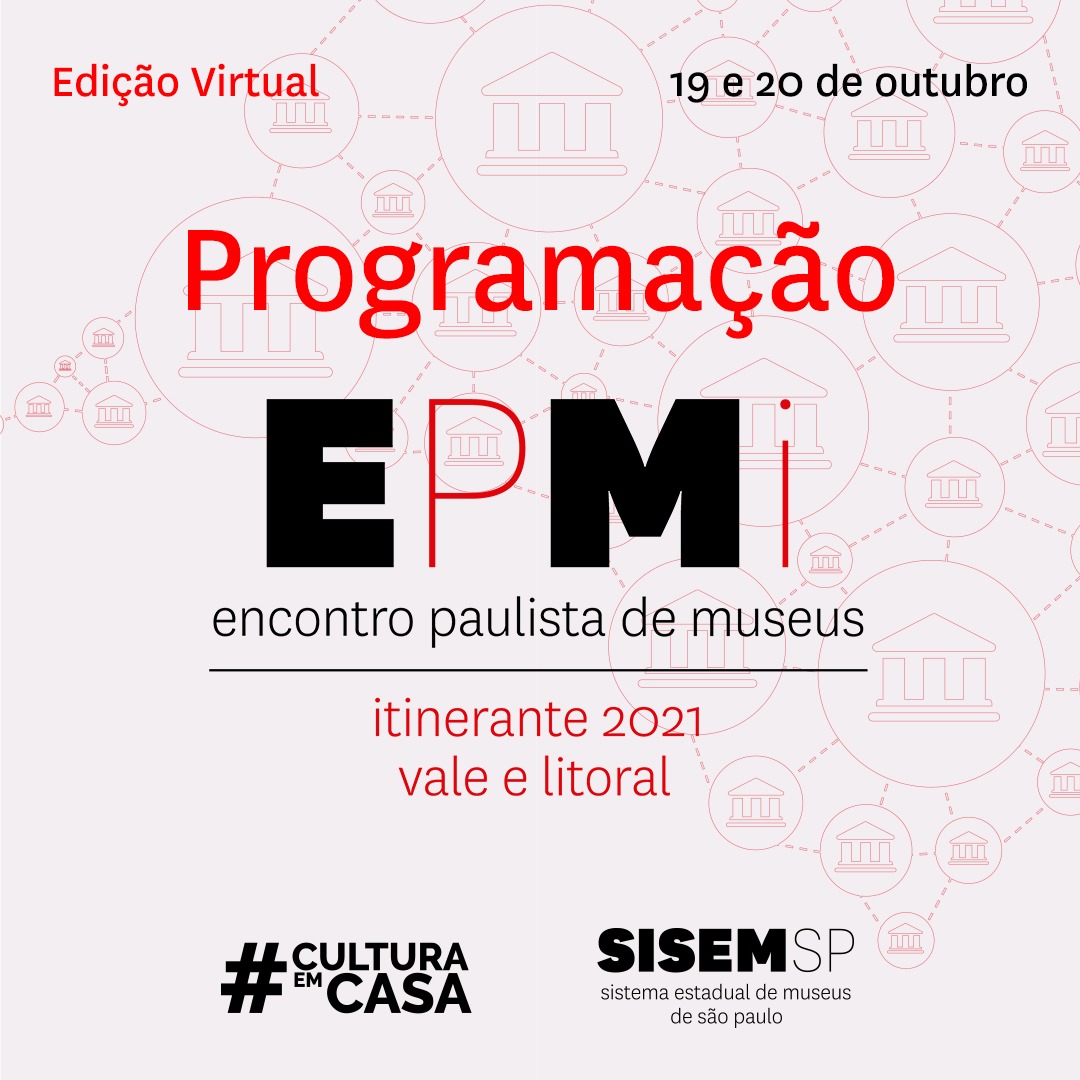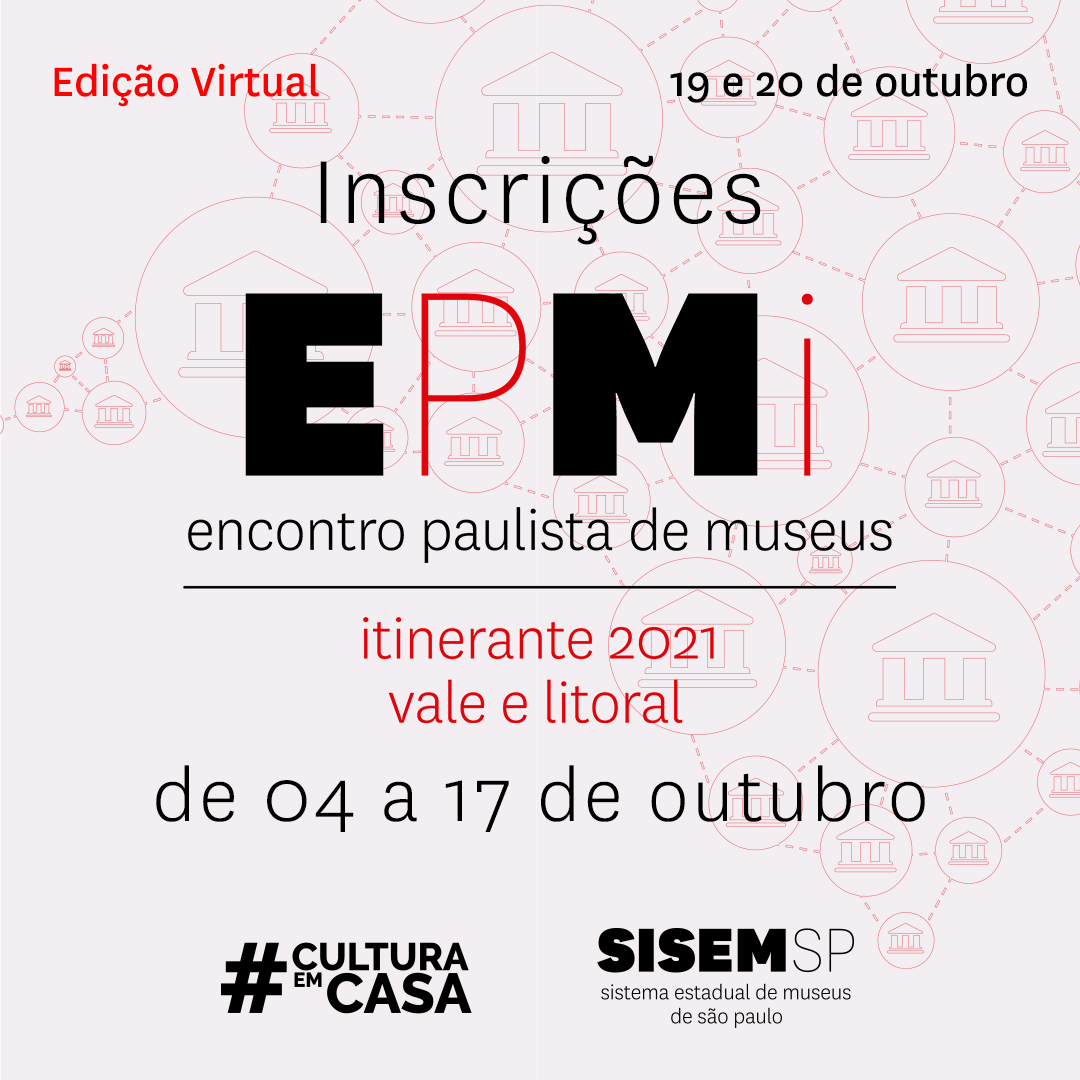Cecilia Machado*
 Taking over the administration of Sao Paulo State Museums System’s Technical Team brought me feelings great challenges were to come, but, without a doubt, the expectations were greatly overcome.
Taking over the administration of Sao Paulo State Museums System’s Technical Team brought me feelings great challenges were to come, but, without a doubt, the expectations were greatly overcome.
It was already of my knowledge the reality of the State’s museums. I had previously worked with DEMA’s (Department of Museums and Archive) team, led by one of the best museologists I had the pleasure of meeting, Dina Jobst. She was, for more than a decade, the responsible for actions made along with the countryside museums.
When I embraced her former position, in 2008, the Secretary’s perspective was to design a whole new policy to the museological area.
Not only in Sao Paulo State, but in the whole country this was the idea. IBRAM was being institutionalized, the Policy for Museums became documents that moved towards the Museums’ Statute and there were very promising prospects. We were in awe of facts that, for us who lived in museology, seemed like dreams: the achievement of a Public Policy for Brazil’s museological area.
In Sao Paulo State, the perspectives were the consolidation of a management with society’s participation. From the administrative point of view, the museums’ management sharing with the organized civilian society – Social Organizations – became more and more begotten.
At that moment, it was the Museums System’s responsibility to update its actions regarding the technical issues needed by the State’s museums.
The first step was to initiate a deep examination on to whom the State’s museums belonged to. The impression was of detachment and unfamiliarity with this reality.
Due to a historical shortage of resources to the department – until 2007 it was called DEMA [Department of Museums and Archive] and, since the Secretary of Culture’s reformulation, is called UPPM [Unit for Museological Patrimony’s Preservation] –, resources such as money and personnel, the actions were occasional, basically training courses and technical advice that was able to manage the demand.
Since the first moments of SISEM’s reformulation, the revision of the System’s Decree was prosecuted and, from then a great immersion in the mapping of Sao Paulo State museological reality was started.
The new System’s acting perspective was the decentering through regional hubs’ formation and the essential function of the Management Team would be, from that moment, to mediate the articulation among the museological institutions in the State.
Visits to more than 180 municipalities were made, municipalities that had institutions which had asked for UPPM’s aid. These solicitations were organized and we started to establish partnerships with Social Organizations, in order to manage this demand. A planning was made necessary and so was the immediate realization of Courses and Traveling exhibitions through regional conversations. At this point, IBRAM was already an important partner.
The first aim, which was to establish rapport and to present the proposals to the Sao Paulo State’s museological environment, was already in progress and, in the beginning of 2009, the UPPM’s Coordination invited SISEM to share, through a State’s Gathering (Encontro Estadual), the new goals and delineations of the State’s and national’s Museological Policy.
The greatest challenge was drawn. Would there be adhesion from the municipalities in this initiative?
It was, indeed, the results of a year of insane work from a shortened, fierce and unwavering team.
We put the first Encontro Paulista de Museus on the tracks.
The goose bumps followed the whole preparation for the Encontro. We knew that it should be great since what we were seeing was a vast cultural phenomenon with many protagonists. Thousands of them.
But did they come to talk about museology?
They did.
More than 900.
And the train continued its way.
Many actions were done in these 10 years. Nowadays, the articulation is a fact and the museology in Sao Paulo State evolves, independently and acting. Prosecuted by its managers, as it is supposed to be.
Congratulations to GT SISEM. The System is a success due to the efforts and technical qualification of the team. And congratulations to the thousands of members of the Museology in Sao Paulo State, who design this beautiful museological map.
There is still much to be done, but the path already walked is of great value.
* Cecília Machado is graduated in History from PUC-SP and post-graduated in Museology from FESP-SP. She is, since 2002, the CEO for Profissionais da Informação, the Coordinator of the Technical Course in Museology, at the ETEC – Parque da Juventude (2006) and also the Coordinator of the Espaço Memória Carandiru. She also acted as SISEM’s Coordinator from 2008 to 2011.



